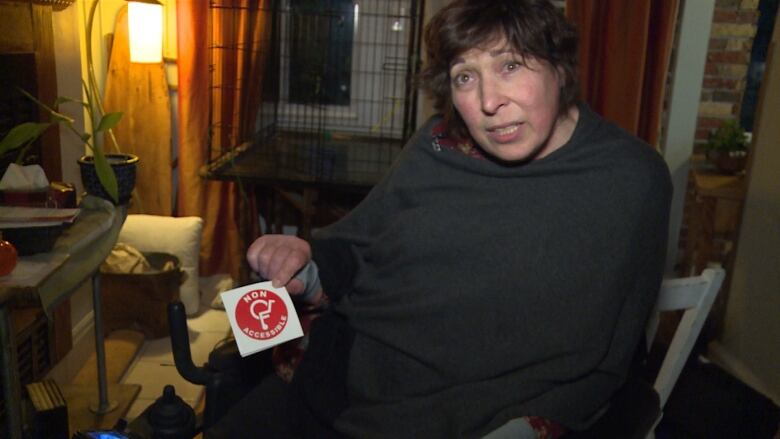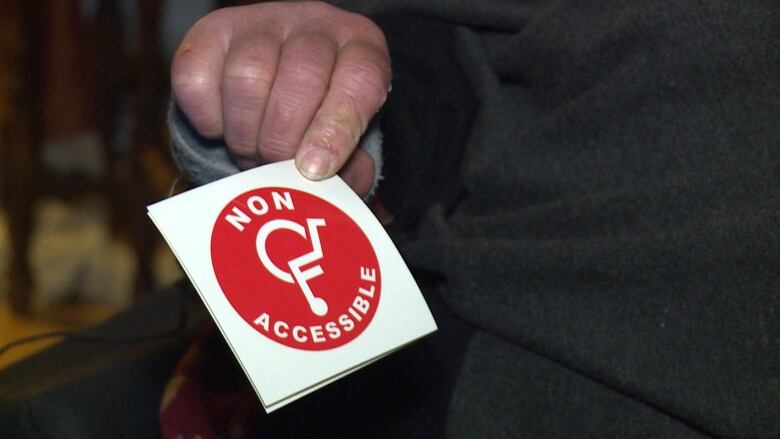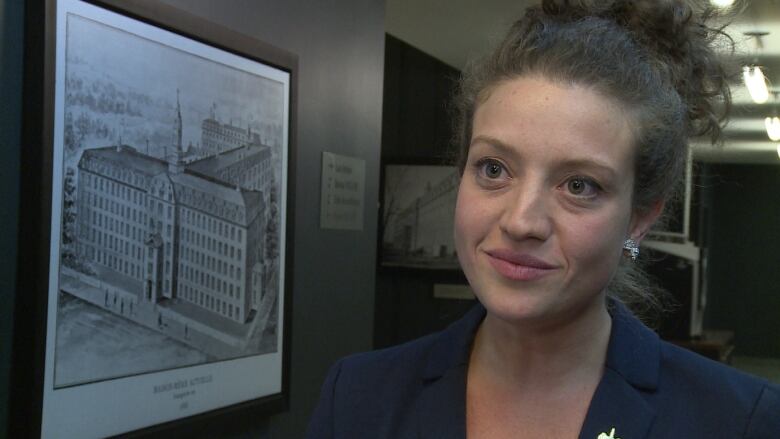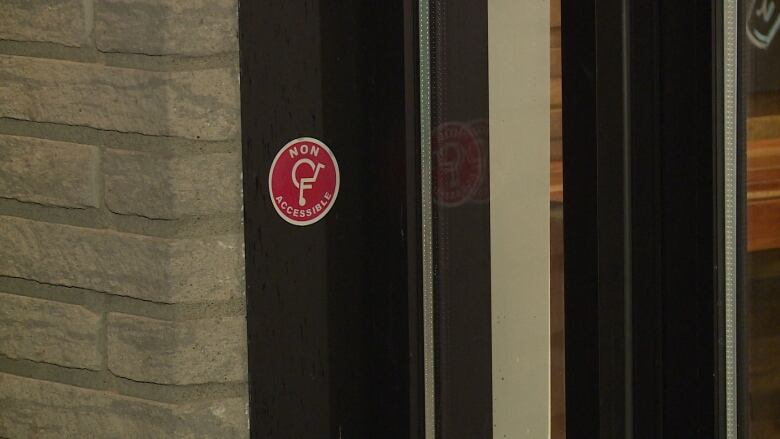Sticker campaign raises awareness of invisible barriers for Montrealers with reduced mobility
City has begun consultations for new accessibility action plan

You may start seeing small, red stickers adorned with an upside-down wheelchair as you enter Montreal businesses.
They're part of an awareness campaign to show Montrealers just how few businesses are accessible to those in wheelchairs or with reduced mobility.
This reality was hidden even to Jody Negley, who launched the campaign, until she began using a wheelchair full-time two years ago.
"It was a rude awakening," said Negley, who lives in Montreal's Saint-Henri neighbourhood and is involved with several local accessibility rights groups.
"It was a little bit, you know, aggravating, to suddenly realize that I myself had also fallen into a culture of denial about universal accessibility."

The sticker campaign came out of the Enable Montreal conference held by Concordia University earlier this year, where people gathered to identify accessibility problems and find solutions.
"One of the ideas we had was to come up with a sticker and to really visually show, clearly, how many doors are out of bounds, basically, for anyone with a disability or mobility impairment," she said.
City begins consultations
Negley says she wants the City of Montreal to develop a service where any citizen can report areas with accessibility issues, and to work with the Quebec government to make more funding available to those wishing to adapt their buildings to be wheelchair-accessible.
She says it's also a matter of informing business owners of existing programs they may not be aware of something she thinks should be under the purview of a full-time accessibility office run by the city.
She will be taking part in public consultations for a new accessibility action plan launched by the city on Monday.
"We really wanted to go further than the past consultations to ensure that even our process is accessible," said Rosannie Filato, the city's executive committee member responsible for accessibility.

Six in-person consultations will be held between now and the end of November, and the city has arranged to have free shuttles help bring those at the extremities of the island to one of those consultations.
Two of those consultations will also be broadcast online and the public can participate over the phone. Filato said there would also be sign language used at the consultations.
"We definitely have work to do," Filato said, noting that just 40 per cent of municipal buildings are accessible to those in wheelchairs.
Progress made, step by step
Filato said the city is making sure that when it rebuilds streets, for example, that it is removing single steps that, while not noticed by most Montrealers, can stop others in their tracks.
That these issues are invisible to so many is part of the problem, said Negley, who is on Projet Montral's subcommittee on accessibility.
"It doesn't take much to become an obstacle. Pretty much everywhere you look, there are places where you will never get to see inside," she said.
"Even places that have one or two steps that could easily become accessible, people just haven't taken the time to do so."

She notes that the campaign does not seek to target business owners, many of whom are renting the building where they operate.
Their goal is to start a conversation, letting business owners know how they could make things more accessible, and what government programs are in place to help them make that a reality.
"The truth of it is, that [for] most people it does not occur to them," she said.
"So this is a little bit in-your-face.A little reminder of all the places where somebody with a mobility impairment can't get into."
Negley has printed 2,000 stickers to be placed around the city, and she says she is looking for able-bodied volunteers to help.
"We definitely need allies for inclusion," she said.
With files from Matt D'Amours.












_(720p).jpg)


 OFFICIAL HD MUSIC VIDEO.jpg)
.jpg)



























































































